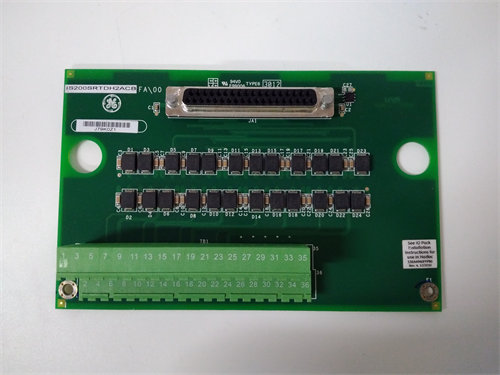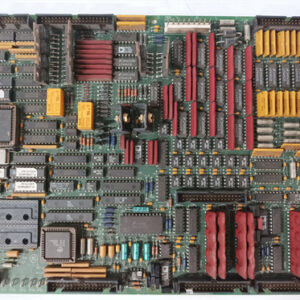الوصف
The GE IS210MVRBH1A is an Interface Board for the Mark VIe series of GE’s Speedtronic Gas Turbine Control Systems. It’s a specialized module that provides an interface for various analog and digital signals. The MVRB in the part number indicates a specific hardware configuration. The <R/S/T> ADIO (Opt) signifies that this board supports various redundancy schemes—Redundant, Simplex, and Triple Modular Redundancy (TMR)—for Analog and Digital Input/Output, as an optional feature.
Key Features and Functionality
The IS210MVRBH1A is a crucial component for gathering diverse signals from a turbine. Its main functions include:
- Diverse I/O Interface: The board is a versatile interface for a mix of analog and digital signals. It’s designed to connect to various sensors and actuators on a turbine.
- Redundancy Support: The designation indicates that this board can be used in various redundancy schemes:
- Simplex (S): A single, non-redundant board.
- Redundant (R): Two boards working in parallel for backup.
- Triple Modular Redundancy (T): Three boards working together for voting logic, providing the highest level of reliability.
- Interface with I/O Pack: The board serves as the physical interface between the field wiring and the main Mark VIe I/O pack. It conditions the incoming signals and sends them to the appropriate processor for control and monitoring.
- Signal Conditioning: It includes built-in circuitry to condition incoming signals, ensuring accuracy and protecting the sensitive electronics from electrical noise and voltage fluctuations.



 +86 15340683922
+86 15340683922 +86 15340683922
+86 15340683922

